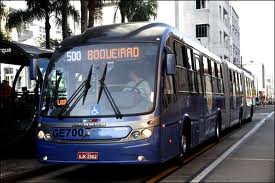Fuel and technology alternatives for buses: overall energy efficiency and emission performance
 The IEA Bioenergy has published a report, titled "Fuel and Technology Alternatives for Buses: Overall Energy Efficiency and Emission Performance," which assesses the emissions reductions potential and fuel efficiency of various fuels for urban buses, and finds that replacing fossil fuels with efficient biofuels is most effective in reducing greenhouse gas (GHG) emission. The project, running from 2009 to 2011, was carried out in cooperation with IEA’s Implementing Agreements on Alternative Motor Fuels and Bioenergy. The project contained four main parts: a well-to-tank (WTT) assessment of alternative fuel pathways, in which the total emissions of different fuels from raw material production to distribution were assessed; an assessment of bus end-use (tank-to-wheel, TTW) performance, in which emission and fuel consumption data were generated; a well-to-wheel (WTW) assessment, which combined WTT and TTW data; and a cost assessment of both direct and indirect costs.
The IEA Bioenergy has published a report, titled "Fuel and Technology Alternatives for Buses: Overall Energy Efficiency and Emission Performance," which assesses the emissions reductions potential and fuel efficiency of various fuels for urban buses, and finds that replacing fossil fuels with efficient biofuels is most effective in reducing greenhouse gas (GHG) emission. The project, running from 2009 to 2011, was carried out in cooperation with IEA’s Implementing Agreements on Alternative Motor Fuels and Bioenergy. The project contained four main parts: a well-to-tank (WTT) assessment of alternative fuel pathways, in which the total emissions of different fuels from raw material production to distribution were assessed; an assessment of bus end-use (tank-to-wheel, TTW) performance, in which emission and fuel consumption data were generated; a well-to-wheel (WTW) assessment, which combined WTT and TTW data; and a cost assessment of both direct and indirect costs.
